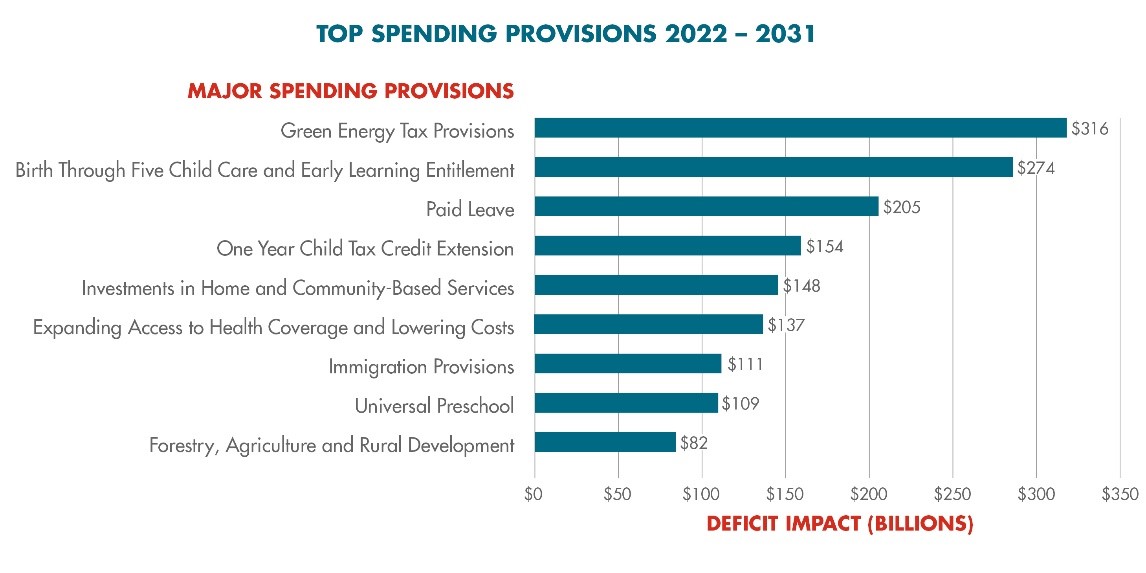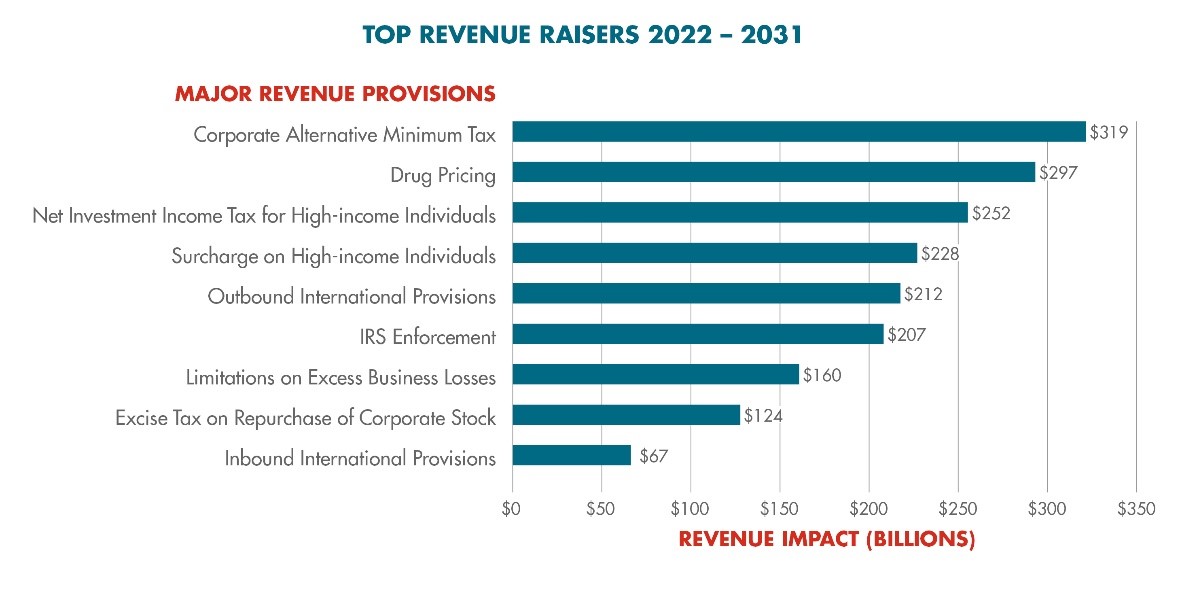Baker Donelson's Public Policy Group and the Daschle Group are pleased to provide our seventh update on developments regarding infrastructure and appropriations legislation. This is a brief status update on appropriations legislation, and a more in-depth review of where the Build Back Better Act (BBBA) stands and what provisions are likely to be changed as the Senate considers the legislation.
In Short
The House and Senate passed a Continuing Resolution on December 2 funding the government through February 18, providing time for continued work on a longer-term appropriations agreement. The BBBA now moves to the Senate, where it will need to garner the support of all 50 Democratic Senators. Key swing votes Senators Joe Manchin (D-WV) and Kyrsten Sinema (D-AR) and the Senate Parliamentarian are expected to decide the scope of the final legislation. The timing on a bill to raise the debt limit and the final resolution of the National Defense Authorization Act will determine the timing on the BBBA.
All the Moving Parts
Infrastructure investments will continue to come from three sources over the next few months: the Infrastructure Investment and Jobs Act, appropriations legislation, and the Build Back Better Act.

Continuing Resolution (CR)/Appropriations
The Senate and House voted to extend government funding through a continuing resolution (CR) from December 3, 2021 through February 18, 2022. The Senate vote was 69-28, with 19 Republicans joining all Democrats to avoid a government shutdown. A summary of that bill can be found here and text can be found here. The CR is somewhat limited in extending certain programs to build pressure for a longer-term appropriations deal. For example, the CR does not include a fix to prevent billions of dollars in looming cuts to Medicare and to farm aid programs next year. Senate Appropriations Chair Patrick Leahy (D-VT) and Vice Chair Richard Shelby (R-AL) are both retiring next year and have signaled the desire to complete FY22 Appropriations bills by February 18. This process will involve the House and Senate first deciding on defense and non-defense spending caps. However, it is likely that progress with appropriations legislation will not begin in earnest until the BBBA is passed.
Likely Policy Changes in the BBBA
The House of Representatives passed the BBBA by a vote of 220-213 on November 19, 2021. All House Republicans and one Democrat voted against the legislation.
The Senate is currently working through a process where the Senate Parliamentarian will decide if certain BBBA provisions fail to meet Senate rules for a reconciliation bill (known as the "Byrd rules"). A summary of those rules can be found here. Immigration provisions could be struck from the legislation and other adjustments are likely during this process.
The White House along with Senate and House leadership sought to "pre-conference" the BBBA to address issues that concern Senators Manchin and Sinema. While both Senators secured major concessions, neither Sinema nor Manchin has expressed their support for the House-passed BBBA. Manchin has indicated that he would prefer to both delay the legislation, in fear of it stoking inflation, and to make the following adjustments to the House-passed bill:
- Manchin has repeatedly said that he does support including a paid family and medical leave provision in the BBBA. He believes the provision is too expensive – Congressional Budget Office (CBO) estimate of $205 billion – and is in favor of reaching a bipartisan compromise instead.
- Manchin, along with Senator Bernie Sanders (I-VT), Bob Menendez (D-NJ) and others have also sought to limit the $80,000 state and local tax deduction (SALT) cap expressing concern over the provision favoring wealthier Americans. It is likely that Senators will come to an agreement to only allow individuals below a certain income threshold to benefit from the SALT cap.
- Manchin has sought to attach income limits and employment requirement provisions to the expanded child tax credit. It is not clear if Manchin is still seeking these concessions.
- On climate policy, Manchin, and potentially other Senators, have also sought to eliminate the additional "union benefit" from the plug-in electric vehicle tax credit provision. He has also sought to remove the bill's methane emission fee.
- Manchin would like the bill to be fully paid for. Should Manchin receive the concessions listed above, the legislation would likely score as paid for by the CBO.
Timing Constraints on BBBA: Debt Limit and Defense Authorization
Timing constraints on the Senate floor could push consideration of the BBBA to the end of the month or early next year. Majority Leader Chuck Schumer (D-NY) has said he would like to consider the BBBA the week of December 13. The timing on the BBBA will be driven by efforts to pass the FY22 National Defense Authorization Act (NDAA) and extend the debt ceiling. While it is expected that the NDAA should pass next week in the Senate, the legislation will need to be conferenced to resolve differences between House and Senate versions and final passage, by the end of the year, will be a priority.
On the debt limit, Treasury Secretary Janet Yellen has said that the government could run out of funding as soon as December 15. Some have speculated that Treasury could delay a scheduled $118 billion transfer into the Highway Trust Fund, extending the deadline a few weeks. Majority Leader Schumer and Minority Leader Mitch McConnell (R-KY) are in talks to find a path forward. Senators have discussed the possibility of lifting the debt ceiling through a stand-alone reconciliation bill. This would require some Republican cooperation and Senate Democrats could seek concessions to curtail amendments and floor time spent on this bill.
Top Spending and Revenue Provisions in the BBBA


Source: Congressional Budget Office: Summary of Cost Estimate for H.R. 5376, the Build Back Better Act. Certain provisions are sections of the legislation, while others are groupings of sections in the bill. For example, "Outbound International Provisions" is all of Title XIII, Subtitle H, Part 1, Subpart C Outbound International Provisions.
We will continue to track developments with this legislation and will provide updates. For more information, please contact one of the authors of this alert.